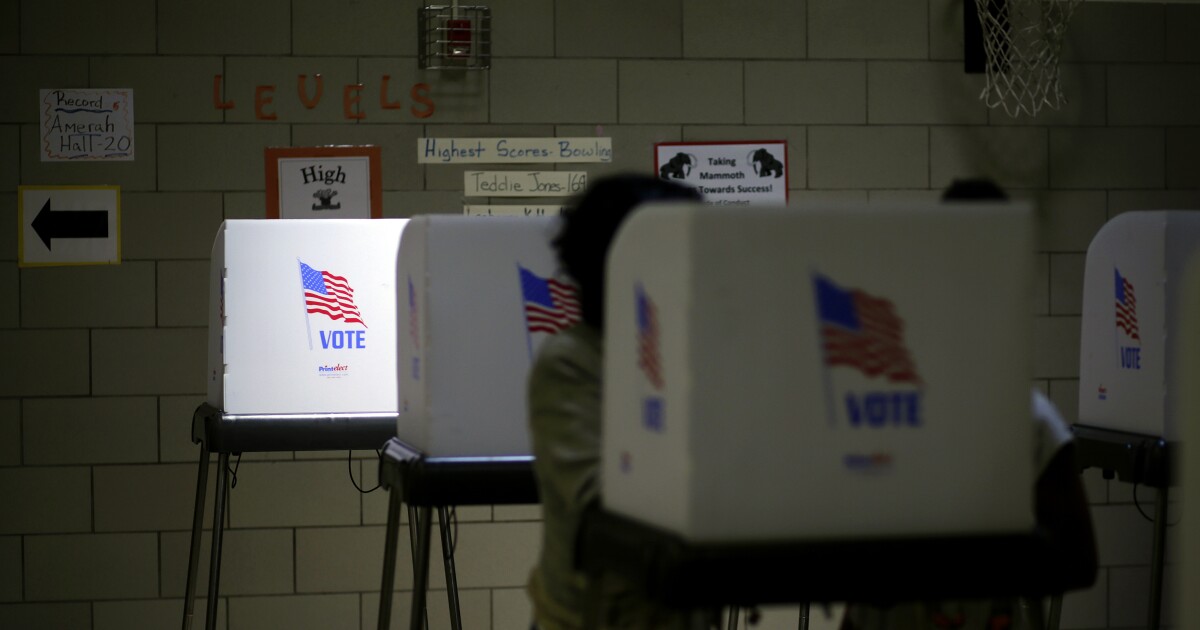

When voters cast their ballots Tuesday in a number of key states, their choices will render a verdict on whether the Republican Party’s aggressive bet on crime messaging was a smart decision.
It’s a tactic the GOP has tried in races up and down tickets this year. From district attorney contests to marquee Senate matchups, Republicans have poured millions of dollars into casting their Democratic opponents as weak on one of the top issues of the midterm cycle.
“The Democrats had so little credibility on crime that any message I tested this year against the Republicans ended up losing us votes, even messages that voters previously liked,” veteran Democratic pollster Stanley Greenberg wrote in an op-ed this week.
Many Democratic candidates have learned, perhaps too late, that discounting fears about public safety put them at a distinct disadvantage against Republican opponents who focused intensely on them.
In New York, for example, Democratic Gov. Kathy Hochul cut an ad promising safer streets and touted efforts to boost police presence on New York City’s subway system in the final days of the race — as Republican Rep. Lee Zeldin, her opponent, ate into her lead in the polls by running a crime-focused campaign.
Republican Mehmet Oz has spoken out extensively in the Pennsylvania Senate race about Democrat John Fetterman’s previous progressive positions on criminal justice. Along with concerns about Fetterman’s cognitive abilities, Oz’s messaging helped him surpass Fetterman in the polls for the first time in late October; he now has a 0.1-percentage-point lead in the RealClearPolitics average of polls after trailing in that metric for months.
Greenberg found Democrats’ assumptions about how criminal justice reforms would play with voters of color were far from the reality of how minority racial groups viewed their positions.
“To be honest, many assumed that battling long-standing racial inequities would be their top priority,” Greenberg wrote. “But that assumption becomes indefensibly elitist when it turns out these voters were much more focused on the economy, corporate power, and crime.”
Democrats in some tight races have had to contend with backlash to the liberal crime policies that their party embraced in the aftermath of the 2020 George Floyd murder.
In Oregon, Democrat Tina Kotek has trailed in the gubernatorial race in large part because voters are frustrated with the explosion of lawlessness in Portland. That city’s liberal leaders defunded police and decriminalized offenses like open hard drug use after the 2020 unrest.
In Pennsylvania, the deterioration of law and order in Philadelphia after electing a far-left district attorney has complicated the ability of Fetterman to ignore crime in the Senate race.
In Minnesota, high-profile state Attorney General Keith Ellison has found his reelection bid a slog in large part because public safety fears in Minneapolis and other cities have turned off many voters.
In Wisconsin, Republican Tim Michels has closed in on Democratic Gov. Tony Evers by hammering him over crime.
CLICK HERE TO READ MORE FROM THE WASHINGTON EXAMINER
The dynamic has forced many Democrats, like Hochul, to fund campaign ads that defend their record on public safety.
Republicans have reportedly spent $49 million on crime-focused ads since early September, and Democrats have spent $36 million over that same time period — a smaller amount but a tally high enough to suggest Democrats recognize the salience of the issue.
While sharper economic messaging is a typical feature of the Republican platform, the fresh law-and-order emphasis this cycle provides a test of whether the issue has staying power for the GOP.







